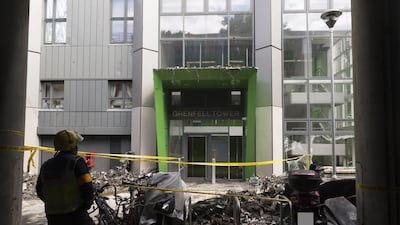It is hardly surprising that the debate about fire safety in the UAE has once again surfaced following the catastrophic loss of life in the recent Grenfell Tower tragedy in London. Commentators who drew parallels between a number of recent fires in tower blocks in the UAE, in which aluminum panels were found to have been a contributing factor to the spread of the fire, were reassured by recent legislation.
In January, new fire safety regulations came into force nationwide, with prosecution and fines of up to Dh50,000 for companies who break the rules, which includes rules on cladding regulations.
In fact, the head of Alucopanel, a world leader in aluminum panels which supplies developers in the UAE, claimed this week that a disaster like the one which befell North Kensington “cannot happen in Dubai” thanks to the new guidelines since “there is no room for any developer to use non-fire resistant panels”.
Many residents will be reassured. Still, if the London tragedy reinforces one point, it is the need to ensure such legislation remains continuously enforced and buildings with infrastructure that predate the new codes need to be inspected. What happened in North Kensington does appear to have been a consequence of an attempt to cut costs at the expense of safety.
Dubai has experienced its fair share of cladding-related fires over the past few years, including the Tamweel tower fire in 2012, the Address Hotel and Torch Tower incidents in 2015 and another incident last year. And here, as elsewhere, it does appear cost was a consideration.
The code introduced in Dubai in 2012 aimed at halting the use of flammable aluminum composite panels. That was found not to have been fully implemented because of the high cost of tests, leading contractors to opt for cheaper materials despite the legislation. The new codes brought in this year aim to minimise and eventually eradicate such incidents.
One positive of the publicity surrounding these tragedies is that residents now routinely ask about cladding before moving into a new building, meaning developers know forgoing such elements will affect their bottom line.
Yet there remain hundreds of towers and buildings built before the new legislation took effect and cladding on these towers must be inspected and if necessary replaced to ensure no tragedies occur. Enforcement of the new code is the key to prevention.

